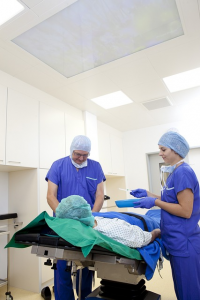Higher all-cause mortality and higher mortality due to cancer, cardiovascular disease, gastrointestinal diseases, and respiratory disorders are associated with lower serum selenoprotein P concentrations in older German adults [Schöttker 2024].

In plain English, lower blood concentrations of the selenium-dependent selenoprotein P are significantly associated with a higher risk of degenerative disease progression and with dying. Moreover, the data from the German study show that the risk of dying associated with low blood Selenoprotein P levels was more than double in men compared to women [Schöttker 2024].
In the Esther Study, German researchers assessed the association of measurements of serum Selenoprotein P concentrations with all-cause and cause-specific mortality data. They measured serum Selenoprotein P at baseline and again at a 5-year follow-up in 7,186 and 4,164 participants, respectively [Schöttker 2024].

